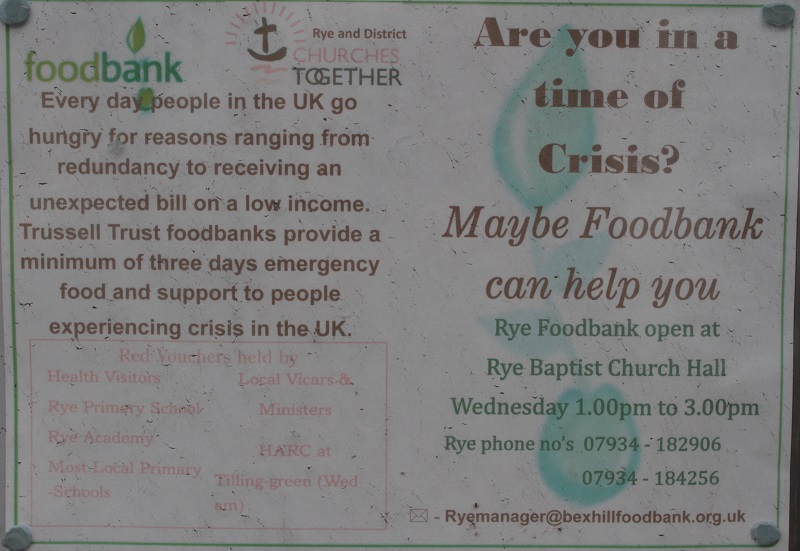Food banks may need to rethink why and when they give help. At the start the target was people on benefit (and usually not in work) who faced a delay before they actually got any benefits from the Department of Work and Pensions. But perhaps now they should also cover people in work – pushed over the edge by cuts in workplace benefits.
Low pay levels have meant the introduction of workplace benefits (now being frozen or cut) which help cover the gap between minimum wages and what you actually need – and, because this “need” is based on actual costs, it will vary between town and country and, in particular, between London and the rest of the country. And the benefits you are eligible for may depend on your age and circumstances – for example, if you are living at home, or do not pay council tax.
The minimum wage, currently £6.50 per hour, will go up in October to £6.70 – though the living wage (as calculated by the Living Wage Foundation) is £7.85 outside London, and £9.15 in London. However that living wage takes workplace benefits like tax credits and help with housing costs and council tax for the very low paid into its calculations.
But tax credits are now being frozen and help with council tax and housing costs is being cut back, and another body concerned with pay levels has calculated that once those changes come into effect the London Living Wage needs to be closer to £11.65 now. The Government though does not propose that its so-called living wage (based on median salary levels, rather than actual costs) should rise to £9 before 2020.
So many of those on low pay (and this area is statistically one of low pay) will find it even more difficult to make ends meet, and they will not be helped by two councils (Rother and East Sussex) now consulting on making more cuts, imposed on them by decreases in central government funding for local councils.
In one case (East Sussex) the cuts hit youngsters forced to stay in education now until 18, and the travel help they need to get to colleges – often further away than their local schools. The other (Rother) may result in householders having to pay some or more council tax. And both mean less less money being available for other necessities, like food and heating.
I have one family member whose pay as a teacher had to be propped up by tax credits and who only manages now by doing lots of spare time work for exam bodies. Another, a graduate in his 30s, works in a London pub on a zero hours contract, never knowing how each month will work out, is on the minimum wage and has to be helped out with his rent every month.
When I grew up the pay gap between the shop floor and management was only six times. The gap now is ridiculous, and low pay for most is a national disgrace when so much is made and owned by so few….though I see little sign of the alleged “trickle down from the top” helping the economy much. The rich, as usual, hang on to what they’ve got.
However the worst joke of all is that we need “austerity”. The way out of a crisis caused in the first place by rich and greedy banks who made disastrous decisions is not to empty people’s pockets so they can not afford to spend and buy, and bring back economic growth.
Billions of pounds were spent to prop up the banks and get the economy going and as a result, we are comparatively in a much healthier position than Greece and some other European countries. But too much austerity will lead to a faltering recovery – and we saw some of that during the Lib-Dem/Tory coalition. Continuous cuts do not encourage recovery and for many families it may be one cut too many.
Do you disagree with this story ? Rye News publishes articles reflecting the diverse range of opinions held in and about Rye and the surrounding areas. Please send in your views at info@ryenews.org.uk
Photo: Ray Prewer



